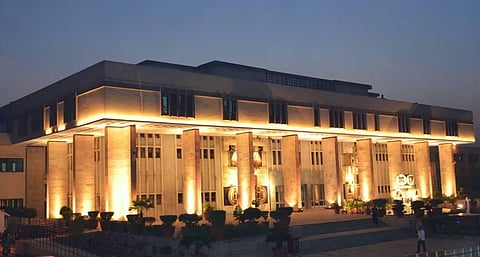

NEW DELHI: In order to reduce the constraints of the economically weaker sections, the Delhi High Court has asked the Centre and the AAP led-city government to streamline the process of availing free medical treatment under various government schemes in city hospitals, while forming a seven-member committee to look into the current system.
"The procedure required for availing free medical treatment must be streamlined, including various surgeries, as well as surgeries for implants/devices and to put in place a single-window mechanism with designated nodal officers at each hospital in Delhi," a division bench headed by Justice Satish Kumar Sharma said in a recent order.
The bench also comprising Justice Sanjeev Narula observed that the city government has formulated Delhi Arogya Kosh and Delhi Arogya Nidhi schemes, and these initiatives are complemented by ancillary programmes aimed at providing medical services to Delhi residents.
The central government has also launched schemes like the Rashtriya Arogya Nidhi and the Health Minister’s Discretionary Grant.
"Nonetheless, we have been apprised of the constraints faced by individuals from economically weaker sections (EWS) when attempting to avail benefits of the scheme. These constraints manifest at various stages: during treatment, submission of applications for financial assistance, procurement of quotations concerning implants, the procedure for disbursing amounts, and finally, while undergoing medical procedures including surgeries," the court said.
The process for availing medical facilities under these schemes should be significantly streamlined and made easily accessible, the court stressed.
"The ministries of Health and Family Welfare at both levels (Centre and state), as well as the MCD, should create revolving funds to cater to the recurring expenditure of patients suffering from chronic, rare, debilitating or lethal diseases, including all necessary forms of treatment such as surgeries and procurement of implants and devices," it said.
Referring to the committee, the order said, “Funds/grants could be made available in the hospitals concerned expeditiously on the basis of demand. This will benefit hospitals established in the peripheral areas in reference to their unique issues and also hospitals established in the well-habited areas in respect of their unique issues."
The court suggested that the procedure for securing financial assistance under different schemes must be made less cumbersome so the public could comprehend it with little assistance, and instructions must be displayed prominently and clearly in language they are able to understand.
“Emphasis must be on processing the applications quickly. All forms must be available in regional languages and the requirement of accompanying documents must be kept minimal, keeping in mind that these are for medical emergencies,” it said.
The committee may suggest a specific methodology under which patients belonging to the EWS category may continue to receive benefits of treatment/drugs till financial assistance is disbursed, and this may also entail stop-gap arrangements at various hospitals to mitigate the pain and suffering till final treatment or surgery is done, the court said further.